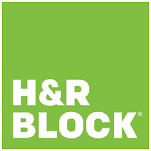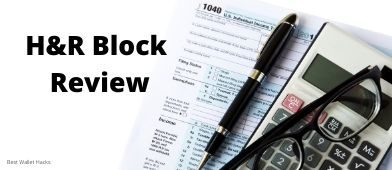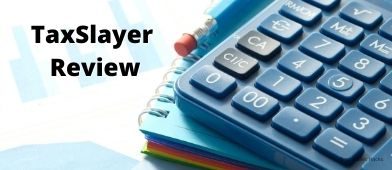I remember the first time I filed my taxes. I was dropping something off at the post office when I saw tables full of cardboard boxes filled with forms with the now-familiar IRS eagle and scales logo. Tax season!
Those boxes were so intimidating. I was so scared of filing my taxes wrong and getting audited.
Fortunately, a friend of mine told me that I didn’t need those forms. There was software for that now and the software was really good.
I used TurboTax for many years before transitioning to an accountant when my business required it. Looking back, the software was amazing, even back then! Can you imagine doing your taxes on one of these forms? All those boxes. All those complicated formulas. It’s amazing anyone gets it right.
I bet accountants were furious when software came out. The average cost of preparing a tax return is $263 – $368.
Nowadays, software is even more impressive. They walk you through the process with real questions a human being would ask and then fill out the boxes for you. Then they compare the boxes for potential errors and ask you more questions. It’s truly amazing and totally worth the price. That’s the beauty of software!
✨ Related: Do You Need to File a Tax Return?
What makes it even better is that if you qualify, you can get all the awesomeness of the software without paying a penny.
Why do companies offer this? They want to get your loyalty as quickly as possible, so they offer free tax preparation now in the hopes you will continue with them when you are no longer eligible for the free product. It’s also because it costs them very little to give this service (marginal cost) so it’s a good investment on their part.
Table of Contents
🔃Updated January 2025 with the latest providers in the IRS Free File program for 2025 – they increased the income limit to $84,000. This is a $5,000 increase from last year. We will also update the criteria for using their free filing services. We added a table to help you quickly scan who qualifies. We also updated the terms of the other free filing options for 2025.
Note: If you rented your home out for 14 or fewer days, you can exclude that rental income from your tax return because of the Augusta Rule. So if you would otherwise have a very simple tax situation, except for rental income of 14 or fewer days, you could still use the free editions.
IRS Free File
The IRS has a Free File program that lets you use well-known free tax preparation software from brands you recognize, like TaxACT, TaxSlayer, FreeTaxUSA, and many more. Not every program is available to every income level, and there are other conditions, but this is the definitive resource for finding the right provider for you.
There are eight providers for 2025, and the following table lists the conditions of the free software:
| Provider | AGI | Age | Free Fed? | Free State? |
|---|---|---|---|---|
| ezTaxReturn.com | $84,000 or less | Any | AL, AR, AZ, CA, CO, CT, GA, IA. ID, IL, KS, KY, LA, MA, MD, ME, MI, MN, MO, MS, NC, NE, NH, NJ, NM, NY, OH, OK, PA, SC, VA, WA, WI | No |
| FileYourTaxes.com | $8,500 – $84,000 | 64 or younger | Any state | AL, MT, RI, WV |
| OnLine Taxes | $48,000 or less | Any | Any state | Any |
| TaxAct | $84,000 or less | 20 – 59 | Any state | Free for AR, IA, ID, MS, MT, ND, RI, VT, WV |
| 1040NOW.NET | $76,000 or less | Any | AL, AR, AZ, CA, CO, CT, DC, DE, GA, HI, IA, ID, IL, KS, KY, LA, MA, MD, ME, MI, MN, MO, MT, MS, NC, ND, NE, NM, NJ, NY, OH, OK, OR, PA, RI, SC, UT, VA, VT, WI, WV | No |
| TaxSlayer | $48,000 or less | Any | Any | Free for AR, AZ, DC, GA, IA, ID, IN, KY, MA, MI, MN, MO, MS, MT, NC, ND, NY, OR, RI, SC, VA, VT, WV |
| FreeTaxUSA | $48,000 or less | Any | Any | Yes |
| 1040.com | $17,000 – $84,000 | Any | Any | Free for AL, AR, AZ, GA, IA, ID,IL, IN, KY, MA, MI, MN, MO, MS, MT, NC, ND, NY, OR, RI, SC, VA, VT, WI, WV |
Or you can use the IRS Free File tool to help narrow down the list of providers.
The benefit of going through the IRS Free File program is that they’re vetted by the IRS, and you’re less likely to be upsold to a paid version. It’s still possible based on your situation, but less likely.
You don’t have to go through the IRS Free File to file your taxes for free. Many of the most popular tax programs out there offer free versions for simple filings. Read on to see who offers what and which is best for your tax situation.
TurboTax Free Edition

TurboTax Online lets you prepare and file your federal and state income taxes for free, as long as you have a simple tax return. This means you only have:
- W-2 income
- Limited interest and dividend income reported on a 1099-INT or 1099-DIV
- Standard deduction
- Earned Income Tax Credit (EIC)
- Child tax credits
- Student Loan Interest deduction
If you need to itemize your deductions, have unemployment or business income, sold stock, rental property, or other similar situations, you’ll need to upgrade to one of the paid versions of TurboTax. You’ll also need to upgrade to get access to a tax expert with TurboTax.
Here’s our full TurboTax review for more information.
File for free with TurboTax Free Edition. ~37% of taxpayers qualify and it includes Form 1040 + limited credits only. File for free with TurboTax Free Edition. For simple tax returns only. Not all taxpayers qualify.
Cash App Taxes

Cash App Taxes, formerly Credit Karma Tax, is completely free to file federal and state taxes regardless of your situation.
There is just one plan and it includes practically everything. Unlike with other free tax preparation software, there are no upsells or hidden fees. There is no paid option, so you never have to worry about being bumped up from a free to a “paid” version.
They support a lot of forms, but there are a few exceptions.
They aren’t able to do (full list here):
- Multiple state filings
- Part-year state filings
- Foreign earned income
- Married filing separately returns in community property states,
- State filing without a federal filing
One particularly great feature of Cash App Taxes is their Audit Defense program. This is offered free of charge through a third-party provider (Tax Protection Plus). Audit Defense includes consultation with a case resolution specialist if you’re audited, document review and collection, and written correspondence with tax authorities.
Your specialist can also act on your behalf in any conferences and hearings with tax authorities. While some other free tax programs offer audit support, it’s extremely rare for that support also to include representation without an additional fee.
However, tax support is not available, not even for an additional cost. So if you have tax questions, Cash App Taxes isn’t the right choice.
Read our full review of Cash App Taxes for more details.
H&R Block

H&R Block is one of the most recognized names in tax prep and also offers free filing for both federal and state. It’s suitable for people who earn W-2 income, unemployment income, and retirement and Social Security income. Other situations it can support include:
- Dividends and distributions
- Interest income
- Earned Income Credit (EITC)
- Child Tax Credit
- Student loan interest deduction
- Tuition and fees statement
However, if you’re self-employed, have rental property income, or investment gains or losses, you’ll need to upgrade to a paid version.
Also, one serious downside of H&R Block’s free version is that you can’t get any support or audit assistance, which several other software programs offer free of charge.
Here’s our full review of H&R Block for more information.
TaxSlayer

TaxSlayer‘s Simply Free plan is exactly that: for simple returns only, but it’s also completely free. TaxSlayer is for those whose taxable income is under $100,000, can claim the standard deduction, and don’t have any dependents.
While it covers W-2, unemployment, and interest income up to $1,500, if you have other types of income, such as business, rental, or investment income, you won’t be able to use it. However, you can deduct student loan interest payments and claim education credits.
A perk of TaxSlayer is that you can upload last year’s return and TaxSlayer will auto-fill your W-2 form to prevent reporting errors. You can also get unlimited phone and email technical support, but no audit assistance without paying for an upgrade (which may not be a problem since the returns it can process are so simple).
There’s also a maximum refund and accuracy guarantee, with TaxSlayer reimbursing you in the case of any penalties caused by mistakes by their software.
Read our full review of TaxSlayer for more information.
Get started with the Simply Free Edition
FreeTaxUSA

FreeTaxUSA isn’t 100% free if you have to file a state return, but it’s as close as you can get. All federal returns are free, and state returns are only $14.99 each. This is likely your cheapest option if you don’t qualify for a free version with another software, or if you need to file in multiple states.
The free version is suited to all tax situations, but you can upgrade to Deluxe for $7.99 if you want priority and live chat support. You can also add on tax support for $39.99 and audit defense for $19.99.
Here’s our full FreeTaxUSA review for more information.
Volunteer Income Tax Assistance (VITA)
For those earning $67,000 or less, and who need additional assistance due to disability, age, or limited language, the Volunteer Income Tax Assistance (VITA) program or Tax Counseling for the Elderly (TCE) can help.
Both are IRS programs that partner with tax preparers who will help you for free.
Here’s more about these programs.
2025 Discounted Tax Preparation Options
If you don’t qualify for free tax preparation because of income or filing status, you may be able to get free or discounted tax filing through another method.
Many tax preparers offer promotions through partnerships, like brokerages, and you may be able to get discounted software that way. Here are some options:
- Active-duty military: Many tax preparers offer discounts or free filing for active-duty military, such as TaxSlayer Classic’s military discount ($0 federal filing) and TurboTax’s military discount (currently free filing). If you are active military, you should also check the Free File program because there are often exceptions to the income rules if you are active military.
- Fidelity customers can get a 25% discount on TurboTax products. You will have to login to your Fidelity account to see if you can get the offer.
- Southwest Rapid Rewards Shopping offers 1,000 points if you file your taxes with TurboTax through their Shopping portal. This is valid for the Free Edition too.
- American Express cardmembers may see a statement credit offer of $15 after a $40 purchase at H&R Block — check under Amex Offers & Benefits.
- Many of the tax preparers still sell software. You can buy it from retailers like Amazon.com, Costco, and many others. It’s often slightly cheaper to buy the software versus doing it online because of the filing costs. For example, TurboTax Deluxe Federal + State Taxes is just under $56 on Amazon. TurboTax Home & Business is just under $96 for the disc.
One final note: To get your refund as quickly as possible, remember to e-file and elect for direct deposit of your refund.
Once your return is accepted, your direct deposit is initiated in about a week. A paper check takes an extra day before it is sent, which means it’s several more days before it makes its way through the postal system and gets to your mailbox.
Then you deposit it, and it’ll take a few more days to clear. Direct deposit will get you your own money at least a week faster than a paper check… plus there’s a zero chance it gets lost.




Great information concisely given. Love that!
How about for sub-s corp?
I would keep an eye out for prices on tax prep company software packages, you’ll probably get the most discount buying one of those to do your taxes.
Thanks for the information, and for reminding me that tax time is here so I need to stop procrastinating! Also, if you’re unsure of something regarding taxes, the IRS site (I recommend googling the topic and finding the results from IRS.gov) is a great resource that has answered many of my questions in the past.
It’s not the most user friendly website in the world… but you know it’s authoritative. 🙂
Actually, TaxAct will do your federal taxes free. (At least, if you click through a cash back site, but I think it’s true in general.) We make more than the free file amount, and TaxAct did our federal free. Some other programs might do the same.
Meanwhile, once you’re done your federal ones, you’re far more likely to just pay for your state taxes while you’re there. For $18 (minus cash back) I did.
The income levels for free filing will vary from place to place so if you don’t qualify at one place, you could at another.
Yes. TaxAct will do Federal for free regardless of income level but I think they charge for some of the addons and more complicated forms. I only need the basic so I’ve been using them. State costs may vary but this year TacAct filed my state for free (prior years had a charge).
FreeTaxUsa has served me well the past 5 years. Have never had pay, and I itemize and Sched C.
Also, most states allow for free filing through their state websites.
These are great information, thanks!
However, my case is different. I have moved to Asia couple of years ago, and couldn’t get my PIN from on line system, so I will have to file with paper form every year, mailed out to IRS but not sure if the mail had arrived or on time? I believe there are some people the same as me….
Any better suggestion ?
Thanks!
I’m afraid I don’t know what a better system would be, have you checked with the IRS to see what the policy is for international filers?